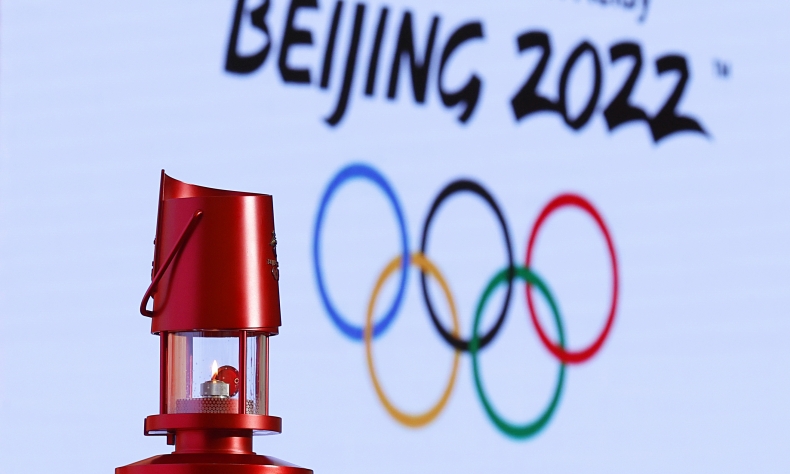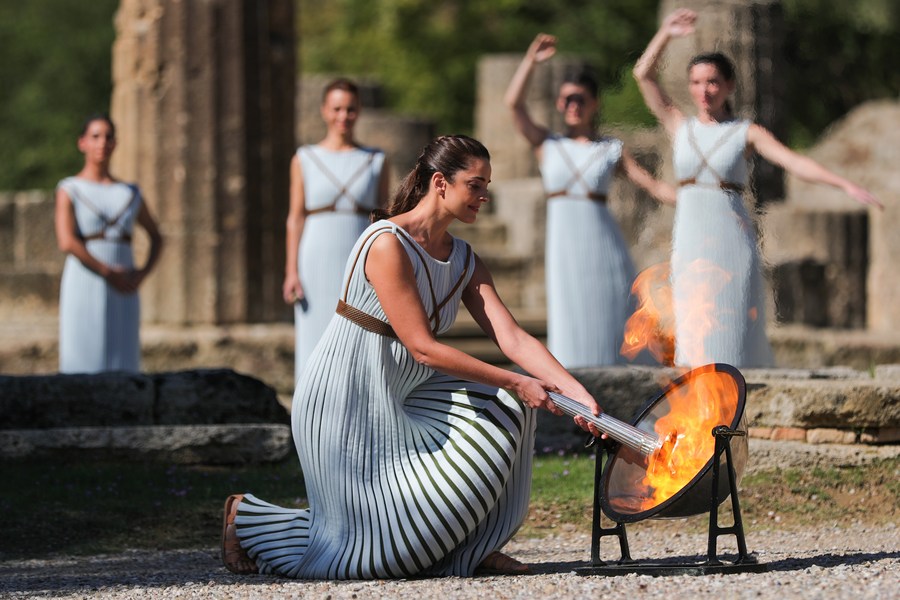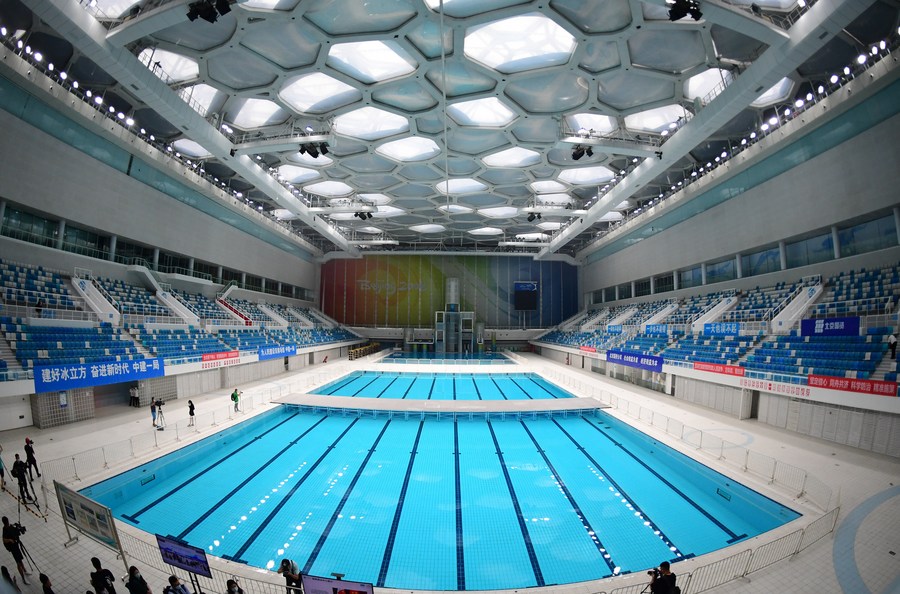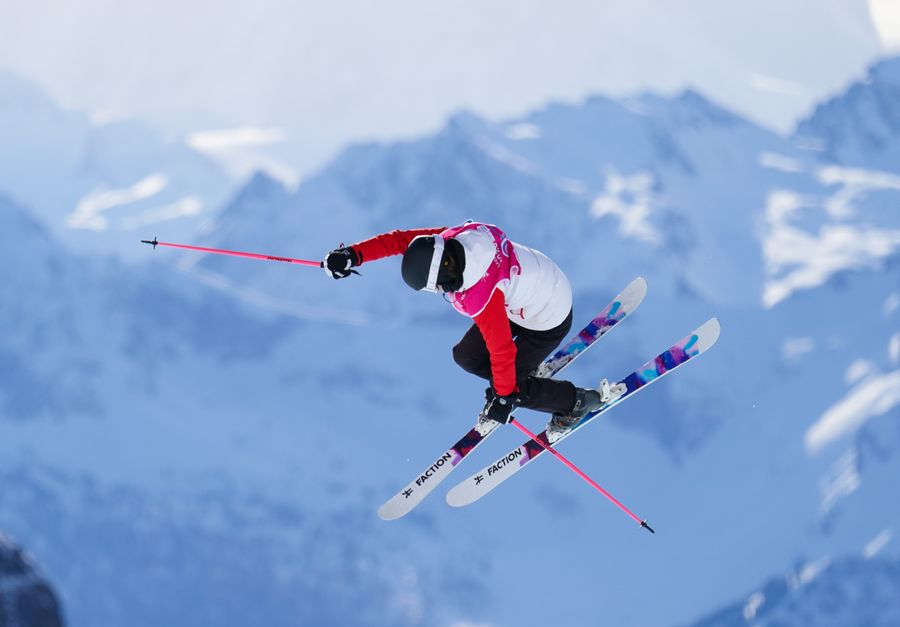Beijing Steps Up Preparations to Welcome the World for Winter Olympics

Let sports be sports with no political interference, and let us just sit and watch the athletes display their abilities and skills in their competitions at the Beijing Olympic Winter Games.
As Beijing welcomed the winter’s first snow, organizers of the Beijing 2022 Olympic and Paralympic Winter Games speeded up preparations to welcome the world for the grand events. In February 2022, Beijing will become the first city in the world to have hosted both the Olympic and Paralympic Summer and Winter Games in the history of the games. A great deal of effort, time and resources have been invested to ensure the facilities are of the highest standard for the athletes, fans and visitors alike.
Winning the bid to host the games is a tribute to the remarkable development of the Chinese nation, a country that has managed to eradicate poverty and elevate itself to the second spot in the world economy. The saying by the late Chinese leader Deng Xiaoping that “Poverty is not socialism” has come true.
Beijing was elected as the host city of the 2022 Olympic Winter Games after the International Olympic Committee (IOC) Executive Board reviewed the bids from all applicant cities on July 7, 2014, and selected three cities, Oslo (Norway), Almaty (Kazakhstan) and Beijing (China) as the final candidates. At the 128th IOC Session in Kuala Lumpur on July 31, 2015, Beijing was declared the winner.

Impact of hosting
China’s greatest strength in hosting the 2022 Olympic Winter Games lies in its human capacity and capabilities. The capabilities have enabled the country to accomplish great industrial and technological feats. The logistics, infrastructure and facilities for the Beijing Olympic Winter Games have been completed in record time and the competition venues have passed the International Sports Federation’s scrutiny. Existing facilities including the Olympic athlete’s village, media and broadcast centers and the National Stadium have been handed over to the organizing committee and have already been used for several events as a test run.
Through the hosting of 2022 Olympic and Paralympic Winter Games, China plans to engage more people in winter sports by creating state of the art sports, recreation and leisure facilities.
The renovation and rebuilding of unused or abandoned facilities is a significant contributor to the urban renewal projects underway in the city. It will be a valuable addition to the “Green Olympics” as Beijing Olympic Winter Games has been dubbed. The appointment of a Sustainability Advisory Committee will ensure clean, inclusive and environmentally friendly games. The measures that involve planting trees at the new venue sites, the reuse of soil excavated from building sites as well as the use of new and renewable energy for the games will mitigate any impact on the surroundings and enhance the ecological footprint of the games. The innovative use of natural and low carbon-emission refrigeration systems will be used at the ice venues.

Overcoming unnecessary political rhetoric
As is the case with every major event, the host nation comes under scrutiny. Criticism and dissatisfaction are expressed, some of which may be constructive and can be dealt with amicably. However, some unscrupulous politicians use it as an opportunity to play to their constituents and present their misinformed rhetoric, calling for sanctions or boycott as the magnitude of the events supposedly amplifies their unfounded and unjustified concerns.
The Olympics are related to the people. Any calls for a boycott of the event shows a clear disregard for the professionalism of the athletes and their dedication to their sport. Their many years of training and discipline is not always apparent in that moment when an athlete competes in an event. Besides the highest state of physical fitness, it takes a lot of emotional and mental strength to compete at this level. The euphoria of victory and the heartbreak of defeat are often accompanied by the triumph of being able to just compete at the highest level of the sport against the best of the best.
The athletes have honed their skills, studied their opponents and are ready, spurred by the awareness of what is at stake. They owe it to themselves as much as they owe it to those who supported them on this journey. Parents, families, friends, relatives, coaches and the fans all revel in the excitement, drama and fanfare. At this professional level, the commitment to sponsors, organizers and other administrators who make it possible to make a living from their natural ability, skill and talent must be steadfast. For some, it may be the first opportunity to participate in the games, while for others, it could be their last.
So, let sports be sports with no political interference, and let us just sit and watch the athletes display their abilities and skills in their competitions at the Beijing Olympic Winter Games.

Africa in the Winter Olympics
Because of their geographic locations, African countries are not strong in winter sports, and thus, do not have a lot of athletes attending Beijing Olympic Winter Games. But there are many African winter sports athletes with a dream of competing at the highest stage of winter sports, and their spirit of being higher, faster and stronger should be encouraged.
Brolin Mawejje, a 24-year-old Ugandan snowboarder, is vying for a much-coveted spot in Beijing as the first Ugandan winter games Olympian and the first African snowboarder to compete. He developed his skills and passion for the sport when he moved to Wyoming in the United States at a young age. For him, it will be a dream come true just to participate in Beijing Olympic Winter Games, having overcome a heart condition.
COVID-19 challenges
The pandemic has created new and unprecedented challenges for everyone concerned with Beijing Olympic Winter Games. The authorities have had to righten control and prevention measures to contain the outbreaks. The safety, comfort and wellness of all, including spectators, staff and volunteers, is paramount to the success of the games. With thousands of athletes from around the world expected to participate, health protocols are likely to be bolstered. Vaccinations will once again come under the spotlight as nations voice their valid concerns on the double standards and inequity in the distribution and availability of vaccines.
The world will be united in Beijing in February and March 2022. The city will witness an explosion of the diversity and the splendor of humankind. It will become a melting pot of emotions as the celebration of victory and the anguish of defeat permeate the arenas of sporting excellence. New bonds will be formed as athletes pit their wits against each other and also challenge themselves for the glory of gold, silver and bronze.
Beijing is ready to welcome all top athletes in winter sports from all over the world.
The author is director of the Diplomatic Society of South Africa.
 Facebook
Facebook
 Twitter
Twitter
 Linkedin
Linkedin
 Google +
Google +










